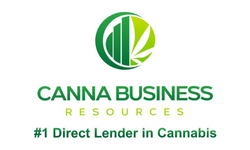
As the demand for cannabis products continues to rise, companies operating in the sector require substantial financial resources to fuel their growth, expand operations and seize market opportunities. From cultivating larger production facilities to expanding distribution networks, debt financing offers a way for existing cannabis enterprises to expand and evolve.
Read on to learn the specific advantages debt financing offers to operational cannabis businesses.
What is Debt Financing?
Because cannabis remains classified as a Schedule I controlled substance at the federal level, many banks and financial institutions are reluctant to engage with cannabis-related businesses. They fear potential legal and regulatory consequences associated with providing financial services to an industry that conflicts with federal law.
Lack of access to traditional banking services poses significant hurdles for cannabis companies seeking debt financing. Without the ability to establish relationships with mainstream banks, cannabis companies often face limited options and higher costs when looking for capital to support their growth initiatives.
Specialized lenders have stepped up to offer various financing options specifically for cannabis companies. One common option is debt financing, which is the practice of obtaining funds from external sources, such as specialized lenders, to finance the growth and expansion of existing cannabis companies. It involves borrowing money with the agreement to repay the principal amount along with interest over a specified period.
Debt financing serves as a means for cannabis companies to access additional capital beyond their existing resources.
6 Ways Cannabis Businesses Can Benefit from Debt Financing
Debt financing offers numerous advantages for cannabis businesses seeking capital to support their growth and expansion plans. Here are six key ways companies can benefit from debt financing.
Lower Cost of Capital
Compared to equity financing, where ownership shares are sold to investors, debt financing often comes with a lower cost of capital. By borrowing money through loans or lines of credit, cannabis companies can access funds at a lower overall expense, as they are only required to repay the borrowed amount along with interest over a specified period. This cost-effectiveness enables companies to allocate more resources to their operations, marketing efforts, research and development and other critical growth initiatives.
Retain Control and Ownership
One significant advantage of debt financing is that it allows cannabis companies to retain control and ownership of their business operations. Unlike equity financing, where ownership stakes are diluted, debt financing involves borrowing funds that need to be repaid but do not result in the loss of ownership or decision-making power. This retention of control enables cannabis businesses to execute their growth strategies while preserving their vision and maintaining autonomy.
Fixed Interest Rates
Debt financing often offers the advantage of fixed interest rates. When entering into loan agreements, cannabis companies can secure funding with a predetermined interest rate that remains constant throughout the repayment period. The stability and predictability in interest payments facilitate better financial planning and budgeting, allowing businesses to forecast cash flows accurately and make informed strategic decisions based on consistent interest expenses.
Tax Benefits
Debt financing can bring about tax benefits for cannabis companies. Interest payments made on debt are typically tax-deductible, reducing the company’s taxable income. By deducting interest expenses, businesses can effectively lower their overall tax liability, freeing up additional funds to reinvest in operations, expansion or other growth initiatives.
Flexibility in Repayment Terms
Debt financing provides flexibility in designing repayment terms that align with their unique business needs. Lenders are often willing to customize repayment schedules, allowing businesses to structure payments in a way that complements their cash-flow patterns and growth strategies. Flexibility ensures that debt obligations can be met comfortably without putting undue strain on the company’s financial stability.
Improved Cash Flow
One of the most significant benefits of debt financing is the potential for improved cash flow. With access to additional capital, businesses can invest in growth opportunities such as expanding production facilities, launching new product lines or entering new markets. The availability of funds from debt financing allows companies to seize market opportunities promptly, accelerate their growth trajectory and enhance their competitive position. Debt financing allows businesses to invest without being tied down to specific assets, providing the flexibility to allocate resources as needed and adapt to changing market dynamics.
Maximizing Growth Opportunities Through Strategic Debt Financing
Debt financing offers existing cannabis companies a pathway to access lower-cost capital, retain control and ownership, benefit from fixed interest rates and tax advantages, enjoy flexibility in repayment terms and experience improved cash flow. By partnering with specialized lenders who are industry experts, cannabis businesses can tap into the guidance and expertise necessary to navigate the industry’s unique challenges. Through this strategic collaboration, companies can unlock their growth potential and propel themselves forward in a thriving industry, leveraging debt financing as a valuable tool for expansion and success.
Frequently Asked Questions
Q: What is the most common form of debt financing?
A: The most common form of debt financing for cannabis companies is obtaining loans from banks or specialized lenders that specifically cater to the industry’s unique needs. Specialized lenders have a deep understanding of the regulatory environment, risk factors and growth potential in the cannabis sector.
Q: What is one of the advantages of debt financing instead of equity?
A: One significant advantage of debt financing compared to equity financing is that it enables companies to retain control and ownership of their business.
Q: What are two disadvantages of debt financing?
A: Two disadvantages of debt financing are the possible higher interest rates compared to equity financing and the risk of financial instability if debt repayment obligations are not met.







